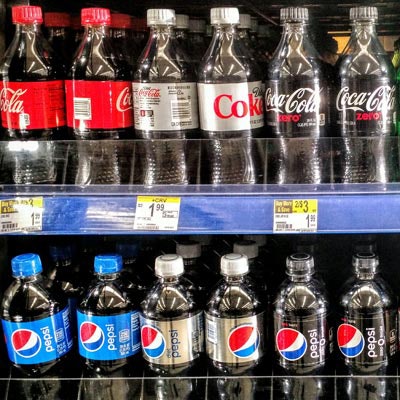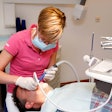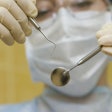
More than one-quarter of British adults turn to sugar when their stress levels spike, according to new survey results from a U.K.-based oral health nonprofit. The percentage was even higher for doctors, office workers, and other professionals.
The Oral Health Foundation surveyed more than 2,000 British adults about their sugar habits and found many employees consume sugary food and drink when stressed. The organization's CEO, Nigel Carter, BDS, called on companies to be proactive about their employees' oral and overall health.
 Nigel Carter, BDS.
Nigel Carter, BDS."Ultimately, it is to the employer's benefit to tackle unhealthy comfort eating as a result of stress, especially as it is happening on work premises so frequently," Dr. Carter stated in a news release. "Desk snacking, communal treat tables, and vending machines -- often filled with sugary foods and drinks -- are the biggest contributors to the problem. This is causing oral diseases such as tooth decay, as well as wider conditions like diabetes and obesity."
The stress hormone cortisol may be partly to blame for employees' sugar binges, the Oral Health Foundation noted. When stress goes up for a short period of time, the body releases epinephrine, triggering the fight-or-flight response that temporarily slows down a person's appetite. But in long-term stressful situations, the body releases cortisol, which instead increases appetite and motivation to eat.
The increase in cortisol can be a problem in offices where half of employees report feeling stressed, the Oral Health Foundation found. About one-third of office workers reported eating sugary foods and drinks under stress, more than the survey average of 28%.
“It is important to encourage healthy eating and to develop a more tooth-friendly culture in the workplace.”
Professionals, including doctors, lawyers, and accountants, were also more likely to eat sugar under stress than the general population. However, people out of work were significantly less likely to binge on sugar.
"It is important to encourage healthy eating and to develop a more tooth-friendly culture in the workplace," Dr. Carter stated. "Snacks, such as cheese and nuts, are better than sugary treats. Milk and water is a great substitute for juices and fizzy drinks while reducing the amount of sugar added to tea and coffee can make a big difference."
To combat the stress-sugar cycle, the foundation called for companies to implement stress-reducing measures and cut back on easily available sugary food and drinks. They hope these interventions can help reduce the estimated 3.6 million work hours lost each year due to people who take time off for oral health problems.
"Stress in the workplace can be difficult to avoid but with good provisions in place and proactive measures from employers, the effects of stress can be limited," Dr. Carter stated. "By encouraging employees to look after their oral health, and to have tooth-friendly workplace snacks, not only will employers have a happier workforce but also a healthier, more productive one too."



















